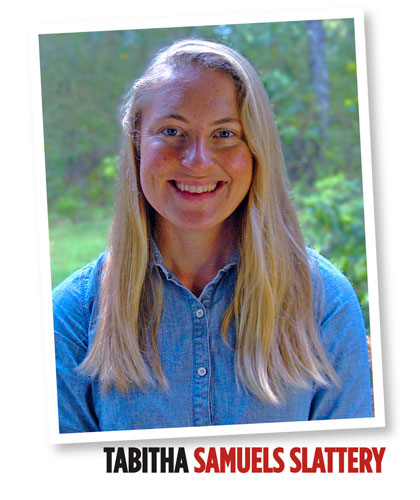6/30/2025
When Worlds Collide: Academia vs. Industry
Tabitha Samuels Slattery

As a part-time grad student and full-time grower, it’s been an eye-opening experience having one foot planted in the workforce and the other in academia. In a lot of ways, these worlds couldn’t be more different
The academic world revolves around research, experimentation and observation. When you’re growing plants for an experiment, crop failures are sad, but not cause for alarm. I remember working in a university greenhouse and noticing a fungal disease attacking plants that were supposed to be used for an important project. A professor told me not to worry about treating the disease, just to document the progression so I could include details in the experiment writeup. I was told that when you’re conducting research, it’s important not to be attached to a particular outcome (like healthy plants) because that would add bias to the experiment. Instead, you should grow the plants with as little interference as possible, only changing factors that are variables for the experiment (like fertilizer rates or pot sizes).
This is a sharp contrast to the for-profit horticulture industry, when growers are expected to “interfere” with plant growth at every stage of the process. Day-to-day growing involves following trusted procedures and processes, with the goal of generating the desired outcome of healthy plants ready to go out the door. Innovation and experimentation still play an important role in further optimizing these procedures, but these trials are always biased with positive results in mind, such as increased flowering, faster finishing times or fewer required labor inputs.
It can be difficult and frustrating for anybody coming from an academic background to change their plant-growing mindset to what’s needed to thrive in the industry. Likewise, if you’re many years removed from college or started your career right out of high school, it can be equally frustrating to work with a grower who views everything as an experiment or wants to spend loads of time researching a problem before actively attempting to fix it.
For both sides, clear communication and patience go a long way. As a new grower, ask as many questions as you can about what’s expected from you in your role. Taking your job seriously will go a long way towards earning the trust of your employers. Don’t be discouraged if you feel like you don’t have much room to innovate or experiment in the beginning; focus on learning established processes first, then once trust is earned, your creativity is far more likely to be welcomed.
If you happen to be training or working with a new grower, try to express expectations regarding job duties and desired results as clearly as possible. Don’t forget that what may be intuitive or second nature to you after years of experience may not be that way for somebody new to the industry. Remind them of the big picture: their employers are concerned about their bottom line, so they should be, too. And while the academic world and the industry can feel like polar opposites, these worlds do have one thing in common: they’re inhabited by people who love plants. Let’s remember what drew us to horticulture in the first place and have some compassion for our fellow plant lovers who are just starting out in their career. GT
Tabitha Samuels Slattery is Perennial Grower for Emerald Coast Growers, Milton, Florida, location.